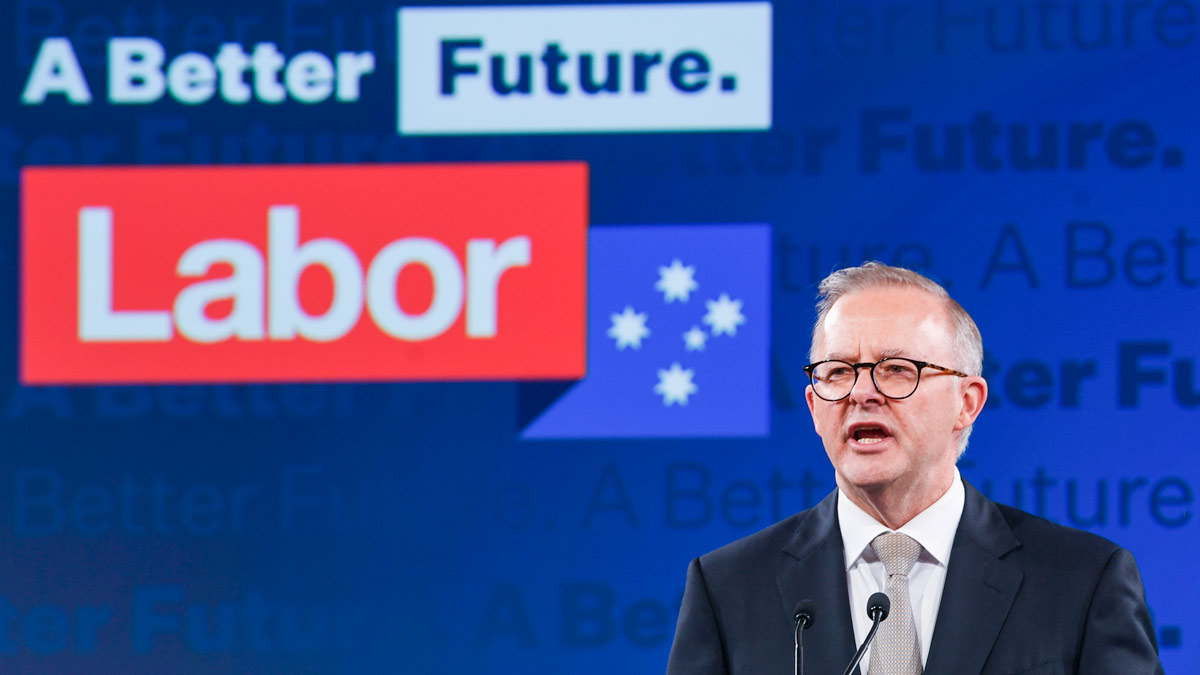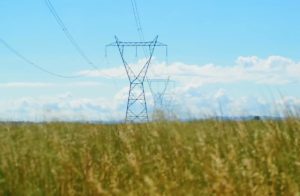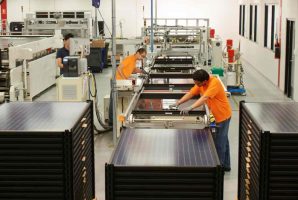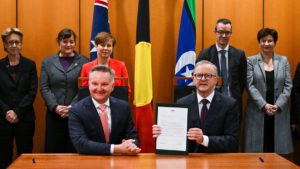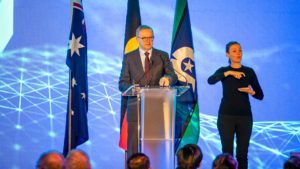Federal Labor leader Anthony Albanese has pitched a vision of a revived Australian manufacturing sector and a resources sector able to move past fossil fuels as he ‘officially’ launched the party’s election campaign in Perth over the weekend.
The launch on Sunday sought to position Labor as the party embracing Australia’s potential as a global supplier of ‘green’ materials used in the production of clean energy technologies, as well as boosting Australia’s own manufacturing capacity.
Launching the campaign in Perth, Albanese gave a nod to Western Australia’s resources sector by announcing that a Labor government would make a significant investment in ‘value-adding’ minerals used in the production of batteries, electric vehicles and other clean energy technologies.
“Labor knows the value of resources jobs, and we are firmly focused on a bigger future for the industry. Thanks to Labor’s $1 billion Value-Adding in Resources Fund, we will capture more value from the resources sector here, and create more Australian jobs,” Albanese said.
The $1 billion fund would offer direct investments and loan guarantees in projects that process and increase the potential market value of Australia’s raw mineral resources like lithium, nickel, copper and cobalt.
“We’ll take resources like lithium and nickel – essential elements of the batteries that will power the vehicles of the future – and instead of shipping them to another country to make batteries, we’ll have what we need to make them right here,” Albanese said.
Analysis of Western Australia’s ‘green’ mineral opportunity has suggested the state was well placed to tap into a burgeoning market for batteries, projected to grow to $136 billion a year by 2030.
Western Australia is particularly rich in raw battery materials, but much larger economic opportunities exist for those able to supply battery producers with processed and ‘value-added’ materials ready for battery manufacturing.
Albanese also said Labor would invest in new electric vehicle charging infrastructure, ‘filling the gaps’ in Australia’s growing fast-charger network, as well as backing electric bus manufacturing.
“A Labor Government will partner with Premier McGowan to deliver a new electric vehicle manufacturing facility, more than 130 buses for Perth, and essential upgrades and charging infrastructure.”
“It’s a great example of how innovation and good planning can hit the sweet spot: creating local jobs and industries and reducing our carbon emissions at the same time,” Albanese added.
It’s a vision Albanese hopes will help build the party’s policy credentials as one founded on understanding the opportunities in the clean energy transition, but without providing fodder for the Coalition to run new scare campaigns about climate change policy.
Albanese said voters had indeed come to know Morrison over the last three years, seeking to remind them that Morrison had failed to tackle a number of key crises, including Australia’s response to the Covid-19 pandemic and the worsening impacts of climate change.
“People know Scott Morrison goes missing when the going gets tough,” Albanese said.
‘People know Scott Morrison’s response to the bushfire crisis was a dismissive, “I don’t hold a hose, mate”. People know he said, “it isn’t a race” to bring vaccines to Australia.”
“People know he said that if you can’t afford your rent, just buy a house. I reckon people know all about Scott Morrison. They’ve worked him out.”
Contrasting Morrison’s track record with Labor’s policy platform, Albanese said he took the approach that “tackling climate change and creating a strong local economy go hand in hand.”
Throughout the election campaign – and the last term of government – the Coalition has sought to equate Australia’s future economic prosperity with the strength of Australia’s coal and gas industries.
During the first three weeks of the campaign, the Coalition has promised around $1.5 billion in fresh fossil fuel subsidies, primarily to support the increased extraction and export of fossil gas.
Even Coalition promises for funding for a number of hydrogen hubs have been paired with funding promises for new carbon capture and storage projects to facilitate hydrogen being produced from fossil gas.
Albanese sought to show that Labor’s policy platform provided a credible path forward for Australia’s resources sector in a decarbonising Australian economy.
While Labor has stopped short of saying it would block the expansion of Australia’s coal and gas industries – saying it would support projects that could ‘stack up economically and environmentally’ – it has at least recognised that there is a mining sector outside of coal and gas.

